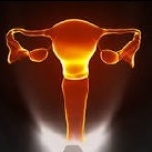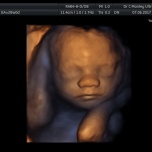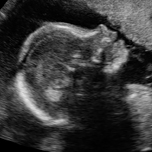Dr. Dennis is pleased to provide comprehensive medical care for all pregnancies.
We understand that women have individual expectations and strive to provide personalised care resulting in a positive pregnancy and birthing experience as well as a happy and healthy mother and baby.
We provide care for normal pregnancies as well as complex and high risk pregnancies including:
- Pre-pregnancy assessment and counselling
- Management of IVF pregnancies
- Pregnancies with previous caesarean sections including vaginal birth after caesarean section
- Previous preterm births including those patients requiring cervical circlage
- Pregnancies with twins and other multiple pregnancies (triplets etc.)
- Pregnancies complicated by maternal medical disorders such as diabetes, thyroid disorders, hypertension, autoimmune disorders, cardiac, renal and neurologic disorders
- Advanced maternal age
During your pregnancy, an Obstetrician is always on-call and available to cover Birth suite patients and any emergencies 24 hours a day, 7 days a week.
If you have any concerns during your pregnancy, please call us – either at the practice on 03 6333 0344 during normal working hours, or at the Launceston General Hospital Delivery Suite after hours on 03 6777 8960.
Initial Referral
Please come to your first antenatal appointment with your referral from your GP or Tas IVF as well as the results of any routine antenatal bloods or ultrasounds that your GP may have organised.
Please ensure that your first visit is organised prior to the 10th week of your pregnancy to allow early confirmation of dates as well as allowing time to discuss the option of prenatal diagnosis.
Initial Ante-Natal Appointment
At your first visit we will ask you about your medical, surgical and obstetric history. This will help identify any issues that may affect your health, or the health of your baby.
We will then perform a general physical examination and an early obstetric ultrasound. A Pap smear may also be performed if it is overdue. The ultrasound scan may need to be done internally and will confirm the health of the pregnancy as well as the estimated due date.
Routine antenatal investigations will be ordered if they have not already been done and we will discuss with you the options of prenatal diagnosis, including the First trimester screening test (FTS) and Nuchal Translucency scan (NT scan) and Non-invasive Prenatal Testing (NIPT).
The results of any antenatal investigations will be reviewed. If you have a high-risk pregnancy, or there are complex maternal medical issues, these issues will be discussed along with their impact on the pregnancy and a management plan will be determined.
At your initial appointment you will meet our practice nurse who you will see just prior to most of your antenatal appointments and who is usually available during working hours to discuss any issues that you may be having.
A follow-up appointment is generally booked for 4 weeks.
Typically you will see us monthly until 28 weeks and then fortnightly to 36 weeks. From 36 weeks until birth you will visit us weekly.
If there are any complications with your pregnancy, we will see you as often as necessary.
First Trimester follow up visit
Many women at this stage of their pregnancy are feeling fatigued and experiencing some degree of morning sickness including nausea and vomiting. We ensure that you are coping with the changes of pregnancy.
The results of all investigation will be discussed at this visit. The results of the First Trimester Screening and early morphology scan are reviewed. The NIPT should also be available and discussed.
Our practice nurse will give you your Pregnancy Information Pack at this visit as well as the necessary paperwork to book into the Birth Suite. Options of breastfeeding and Antenatal classes are included in the Pregnancy information pack but can be discussed further with the practice nurse.
An appointment will be made for you to have your Morphology Ultrasound at 18-20 weeks’ gestation. This ultrasound assesses the physical structure of your baby as well as its growth and placental location. We are pleased to have partners attend the ultrasound or a close family member or support person if your partner is unable to attend.
Second Trimester
The second trimester is often the most enjoyable part of pregnancy as your energy returns, the nausea subsides and you start to look pregnant. By 20 weeks, most women have started to feel their baby moving.
At each antenatal visit your blood pressure will be taken and uterine height checked. Generally, a bedside ultrasound scan to confirm foetal activity, normal amniotic fluid volume and foetal position will be performed. These scans are an extension of the clinical examination and are not billed for.
The results of the morphology scan will be discussed and plans made to manage any problems found.
At 26 weeks’ gestation, further blood tests will be organised which include a Glucose Tolerance Test (GTT) to screen for gestational diabetes, a Full Blood Picture (to check haemoglobin and platelet count), Iron studies and a blood group antibody screen.
It is not uncommon following these tests to be advised to take iron supplements. Those patients who are Rhesus negative will be given anti-D injections at 28 and 34 weeks.
Third Trimester
You will be seen more frequently in the third trimester, to check the baby’s growth and your blood pressure and to discuss in more detail your preferences and plans for the delivery of your baby. The signs and symptoms of labour will be discussed and you will be given advice on when to present to the birth suite.
A growth and foetal wellbeing ultrasound may be arranged in the 3rd trimester especially if there are concerns about foetal movements, foetal growth or amniotic fluid volume or if the pregnancy is complicated by diabetes or hypertension. The location of the placenta will also be confirmed.
At around 35-36 weeks we will take a vaginal swab to look for a bacteria called group B Streptococcus (GBS). GBS can be potentially fatal for some babies and if it is detected we recommend that you have antibiotics when your waters break and throughout the duration of labour to help protect the baby.
There are no other routine tests in the third trimester but if there are concerns about your health or the health or growth of your baby, it may be necessary to do further blood tests, ultrasounds or other tests like foetal heart-rate monitoring (a CTG).
It is helpful if your partner or other support person can attend with you for at least one of these appointments, so that they are aware of your preferences and can ask any questions they may have about the birth.
We aim for a spontaneous onset of labour at term, but there are many situations where it is safer for mother and baby if labour is induced. An internal examination may be required to assess the ‘ripeness of the cervix’ and induction of labour discussed if indicated. Common reasons for induction include postdates, prelabour rupture of membranes, maternal hypertension and diabetes and poor foetal growth. Recent evidence is showing that induction of labour at term decreases the risk of caesarean section for postdate pregnancies.
It is also worthwhile attending parent education classes which are available through LGH. These classes are conducted throughout the year and offer flexible options for attendance. A range of topics are covered including labour and delivery, elective caesarean section, pain relief options in labour and helping siblings adjust to new babies.
Birth
Delivering your baby
When it’s time to deliver your baby, you are in safe hands. Your obstetrician will keep you fully informed throughout your delivery. We promote safe birth and strongly agree in supporting patients through this journey. Dr. Dennis will care for you as private patients at Launceston General Hospital. She works alongside many caring and experienced midwives and believe in collaboration and teamwork to provide the best experience for our patients.
Our philosophy is to allow labour to progress with as little intervention as needed but birth can sometimes be unpredictable with risks to the baby and /or mother and in these cases where advanced medical or surgical assistance is required you can be assured that your highly-experienced obstetrician will assess the situation and perform the necessary procedures to ensure a safe delivery. Birthing in a public hospital with immediate access to operating theatres, anaesthetists, paediatricians and a neonatal nursery can give you peace of mind that all eventualities are covered.
The Birthing Suite at Launceston General Hospital is located on level 4. Press the intercom and you will be admitted. After hours, there is also intercom access to the hospital. Just press the intercom, give your name and tell them you require admission to the Birth Suite and you will be admitted.
Present to the Birthing Suite if you have any of the following problems. Your obstetrician will be contacted and will come and assess you.
- Vaginal bleeding
- Rupture of membranes
- Abdominal pain
- Reduced foetal movements
- Fever
- Symptoms of high blood pressure e.g. headaches or flashing lights
- Hypoglycaemia not responding to usual measures if you are on insulin for diabetes
- If you have any serious concerns about yourself or your pregnancy
- If you are or think you may be in labour
You will be met by a midwife who will do an assessment of you and your baby and who will then contact your Obstetrician who will come and assess you. It is advisable to ring first on (03) 67778960 but if it is an emergency just come and we will see you when you get there.
Postnatal
Following the birth of your baby you will be transferred to the LGH Postnatal ward. There are 5 private rooms and a further 4 single rooms. Your immediate postnatal care is provided by your Obstetrician with daily visits in uncomplicated deliveries and as frequently as required with complex cases.
The experienced midwifery staff on the post-natal ward are available for assistance with breastfeeding and other postnatal issues. Review by a Lactation Consultant or physiotherapist can be arranged. The option of Extended Midwifery Support (EMS) is also available for those who wish an early discharge.
Once you are home we are still available to provided assistance. If you have any postnatal issues, please feel free to contact us in the office during normal working hours or if it is an emergency just present to labour ward at any time and your obstetrician will be contacted to come and see you.
A postnatal visit is usually scheduled with your obstetrician 6 weeks post-delivery but we are happy to see you prior to that if required.





